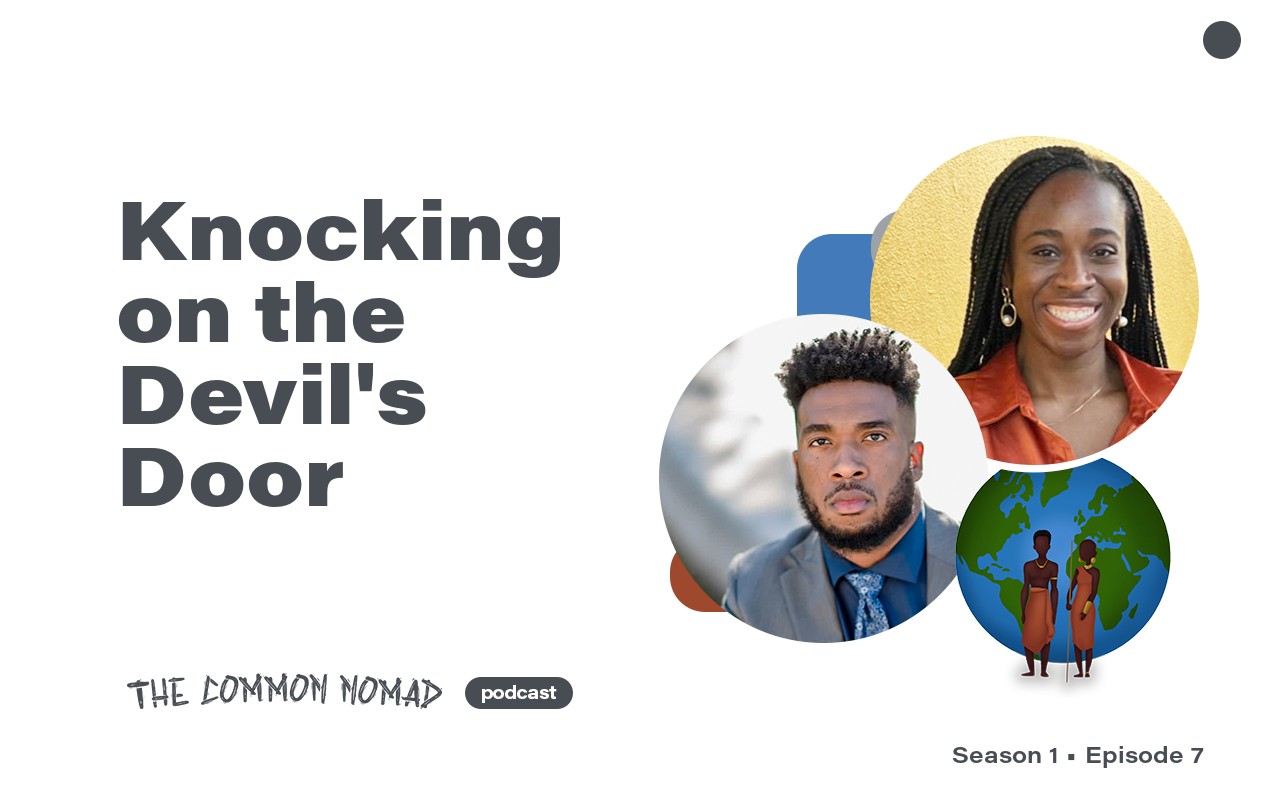
Knocking on the Devil's Door
Contemplating the Lure of Negativity and the Path to Self-Awareness
What does "Knocking on the Devil's Door" mean?
Knocking on the Devil's Door usually means you are in a state of looking for trouble. The only reason to look for the devil is because you want to do something evil. After some time, the opportunity for bad things will come.
Listen to the entire episode here
Introduction to Episode 7 of Season 1 of The Common Nomad podcast
Co-hosts Edward and Priscilla delve into the human psyche to unravel why individuals might actively seek out or disseminate negativity, and the profound importance of self-reflection in these behaviors. The episode, aptly titled "Knocking on the Devil's Door," challenges listeners to consider the darker aspects of our interactions and the consequences they harbor.
The Attraction to Negativity
Edward kicks off the conversation by pondering the human fascination with bad news and the odd comfort some find in sharing it. As Edward points out, a key aspect of maturity is self-analysis – asking ourselves what we seek in the shadows of information and whether it truly serves our well-being or betrays an underlying issue.
Consequences of Holding onto Anger
Both Edward and Priscila discuss the Biblical wisdom of being "quick to listen, slow to speak, and slow to anger," a mantra that resonates in today's quick-tempered society. Priscilla shares a personal anecdote where a casual conversation escalated into anger over a minor disrespect. Through this lens, the hosts explore how holding onto anger, often over trivial incidents, can unnecessarily magnify conflicts.
Self-Reflection and Reaction Times
The episode further dissects the importance of self-awareness in contentious environments. Edward illustrates through his own experiences: feeling irritation over something trivial, encountering 'dumb' questions, and the discomfort of feeling like a burden even while being a paying customer. These scenarios prompt a crucial introspective process, usually unfolding within mere seconds before deciding how to react.
Challenging the Appeal of Chaos
As the dialogue unfolds, the hosts challenge the idea of actively looking for trouble. Why do some relish in chaos, or feel indifferent to the negative experiences they propagate? Priscilla urges listeners to consider whether the fleeting satisfaction of mischief is worth the lasting impact on oneself and others.
The Role of the Third Party
A significant portion of the discussion revolves around the role of a neutral third party in conflicts. Is this seemingly impartial person aiding the bully, or do they inadvertently connect the bully to the victim? Edward and Priscilla dissect the instigator's role, emphasizing that while they may not be the source of negativity, they act as facilitators or conduits.
Evolving from a Hot Temper
Edward candidly reflects on his journey from a hot-tempered past to a present where he exercises greater restraint. He emphasizes that understanding one's anger, feeling it, and then allowing a period to cool off is essential for growth. This personal evolution mirrors the advice the co-hosts give to their audience – to introspect and understand the triggers behind their emotions.
Understanding Emotions and Taking Control
Both hosts agree that unpacking our emotional responses can provide clarity and better control. Rather than following illogical thoughts that lead to irritation, they promote self-control and cool-off techniques to avoid unintended consequences on others.
The Psychology of Bullying
Touching on the topic of bullying, Edward and Priscilla dissect the possible reasons behind such aggression. From a perceived need for power to projected frustrations, they invite listeners to examine the deeper roots of these behaviors and their potential for causing harm.
Conclusion: Facing Our Reflection
The episode wraps up with a powerful reminder: the behaviors we exhibit have consequences, and we must be prepared to face them. Edward and Priscilla's dialogue iterates that whether it's the instigator, the bully, or the one knocking on the devil's door, the repercussions of our actions – intended or not – eventually come knocking back.
As we draw to a close of "Knocking on the Devil's Door," we're left with a clearer understanding of the delicate interplay between our search for negativity, anger management, and the vital role of introspection. Edward and Priscilla invite us all to step back from the brink and to choose a path of self-discovery and growth over one of turmoil and conflict.

